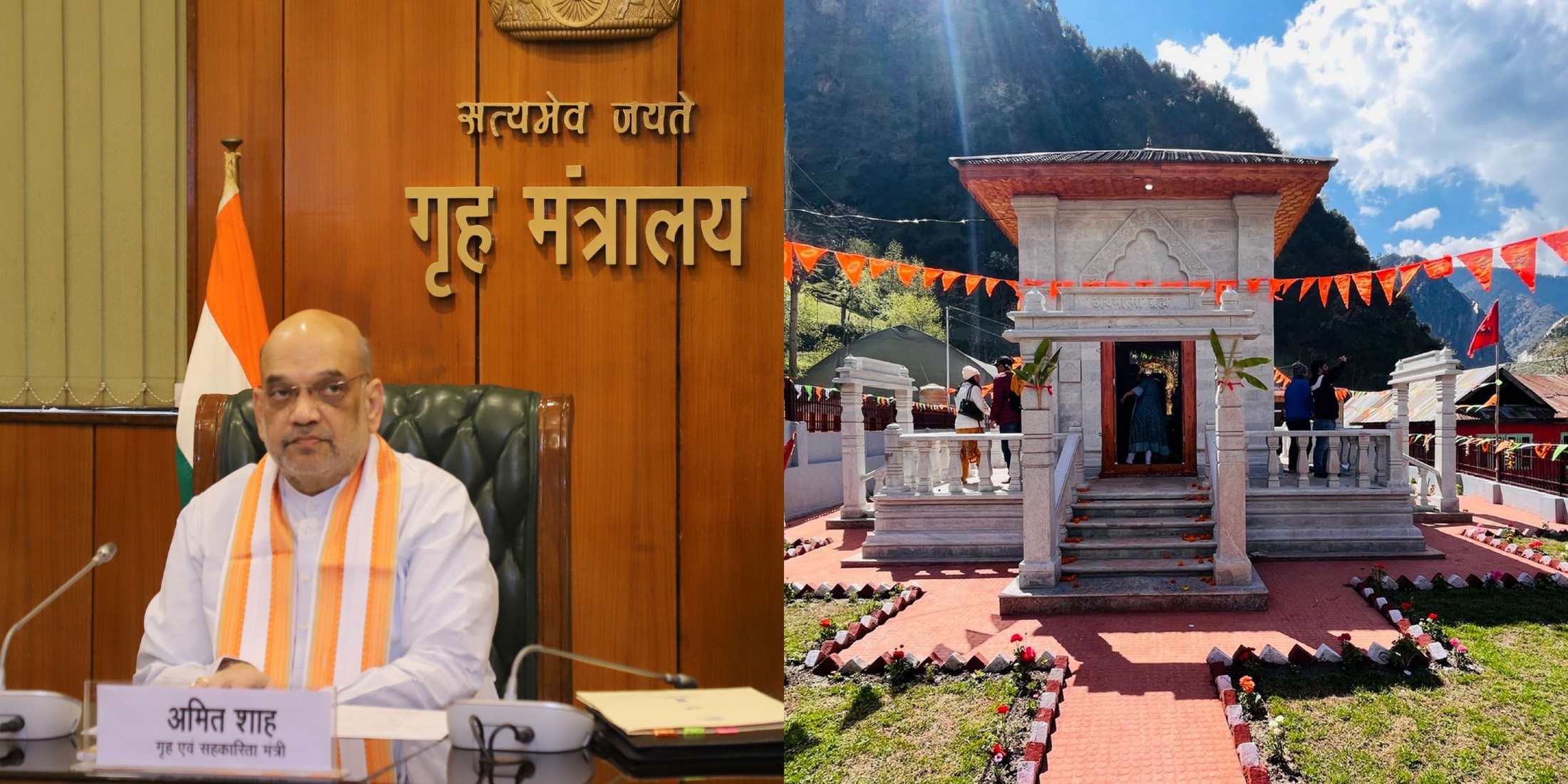
SRINAGAR, Mar 22: Home Minister Amit Shah on Wednesday e-inaugurated the Mata Sharda Devi temple near the Line of Control in the Karnah sector of Jammu and Kashmir, saying the abrogation of Article 370 is taking the Union territory back to its traditions, culture and the Ganga-Jamuna tehzeeb.
Shah said the opening of the temple in north Kashmir’s Kupwara district was the beginning of a new dawn and a quest for reviving the Sharda culture.
“The Mata Sharda Mandir is being opened for devotees on the auspicious occasion of our (Hindu) New Year. This is a good omen for devotees across the country. Mata Sharda’s blessings will now remain over the whole country for centuries to come,” he said in his speech.
The Union minister regretted that he could not be physically present at the inauguration, but promised to visit the temple on his next visit to J&K. Lieutenant Governor Manoj Sinha was present at the inauguration.
“Whenever I will visit Jammu and Kashmir, I will start my visit by bowing at the Mata Sharda Devi temple,” Shah said.
He said the opening of the temple has been made possible by the blessings of Mata Sharda Devi and by the joint efforts of the people on both sides of the LoC.
“I convey my best wishes and gratitude to Save Sharda Committee president Ravinder Pandita for his struggle over so many years, which has now borne fruit. This step is not just about the renovation of a temple but the beginning of the quest for reviving the Sharda culture,” he said.
Sharda Peeth was considered a centre of knowledge in the Indian sub-continent once and scholars from all over the country would come here in search of scriptures and spiritual knowledge, he added.
Referring to Pandita’s demand for the opening of the Sharda Peeth across LoC on the lines of the Kartarpur Corridor, Shah said the Centre will surely make efforts on this and there is no doubt about it.
After Article 370 was abrogated due to Prime Minister Narendra Modi’s efforts, peace has been established in Kashmir and it has taken the valley as well as Jammu back to its traditions, culture and Ganga-Jamuna tehzeeb, he said.
Article 370, a temporary provision in the Constitution, gave special status to the erstwhile state of Jammu and Kashmir. It was abrogated on August 5, 2019, and the state was divided into two Union territories — Jammu and Kashmir and Ladakh.
Shah said J&K has taken initiatives in all sectors towards social and economic change, under which renovation is going on at 123 selected places of religious significance, “Many temples and Sufi places, including Ziyarat Shareef Reshimala, Ram Mandir, Safakadal temple, Haloti Gompa temple, and Jagannath temple, are being renovated. A budget of Rs 65 crore has been allotted and 35 places will be renovated and revived in the first phase,” he added.
Shah said 75 religious places and Sufi shrines were identified and 31 mega cultural events were organised and 20 cultural ‘utsavs’ were also organised in every district.
“It has led to the rebirth of our heritage,” he added.
Congratulating Lt Governor Sinha for implementing all of PM Modi’s schemes on the ground, Shah said it was appreciable the way he has worked with passion.
“Under Modi’s leadership, Sinha has played a great role in bringing industrial investments to J&K. I congratulate and admire the J&K administration and its chief Manoj Sinha for this,” he said.
The Union minister expressed gratitude to all people of the civil society under Pandita’s leadership on both sides — PoK as well as Jammu and Kashmir — for the opening of the temple.
Shah said the architecture and construction of the temple have been done according to Hindu scriptures under the aegis of Sharda Peeth.
“The idol of Sharda Maa, donated by the Sringeri Math, and its installation, the time period from January 24 till today was like a journey. The reconstruction of Maa Sharda’s temple in Kupwara is a necessary and important step in the direction of discovery of Sharda-civilisation and promotion of Sharda-script,” he said.
The ancient temple and its centre are being rebuilt with a view to reviving the centuries-old pilgrimage to Sharda Peeth temple in Pakistan-occupied Kashmir.
Sharda Peeth, the seat of Sharda, the Kashmiri name for goddess Saraswati, was one of the foremost ancient universities of the Indian subcontinent.

